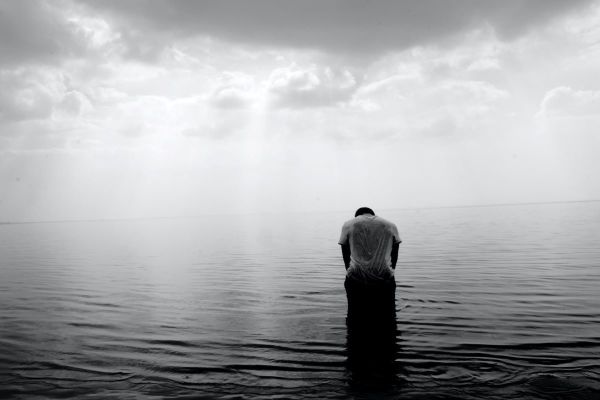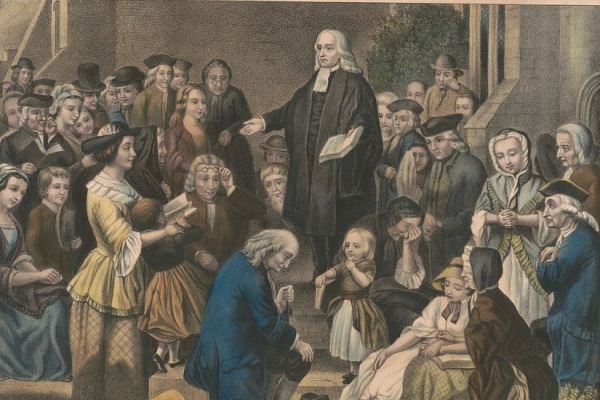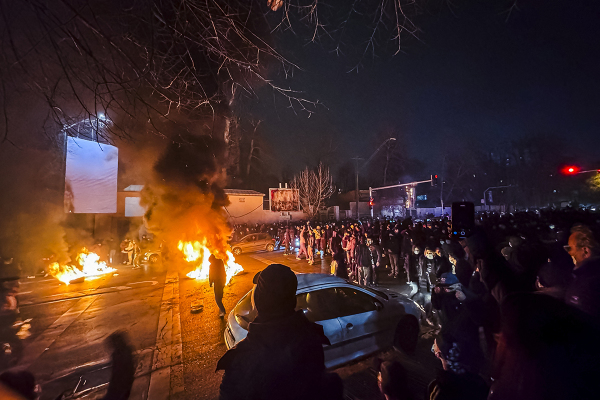'Banality of evil': Scholars explain what's behind assisted suicide's expansion in the West

WASHINGTON — As assisted suicide rises to new record levels in some areas of the globe, experts say that the "banality of evil" and expressive individualism are playing a role as governments in the United States, Canada and Europe are pushing the envelope by expanding who can access "medical aid in dying."
On Tuesday, the Institute for Human Ecology (IHE) at The Catholic University of America hosted a panel discussion titled "What is Euthanasia Doing to the West?" Panelists pondered the reasoning behind the rise of assisted suicide in the West.
The panelists included The New Atlantis Editor Ari Schulman, author Leah Libresco and medical humanities Professor Charlie Camosy at the Creighton University School of Medicine. New York Times columnist Ross Douthat, a media fellow for IHE, moderated the discussion.
A brief history
Camosy highlighted the history of assisted suicide in Western policies, including the formation of Dignitas in Switzerland in 1998, which provides "assisted suicide tourism."
In 2001, the Dutch Parliament approved a bill legalizing euthanasia in the Netherlands, with Belgium following suit in 2002. The country lifted its age restriction on euthanasia in 2014, allowing children to seek it.
In the U.S., assisted suicide is legal in 10 states and the District of Columbia. Oregon legalized assisted suicide through a ballot measure in 1995, a decision that went into effect in 1997.
Vermont became the first state to legalize assisted suicide in 2013 through the legislative process.
According to data from the Oregon government, 278 people died via assisted suicide in 2022 in the state, a 17% increase from the previous year and a new record. Since Oregon legalized assisted suicide in 1997, over 3,000 people in the state have received prescriptions under the state's Death With Dignity Act, and 2,454 people have died from taking the medications.
Among the concerns listed by those who ended their lives, 88.8% said they feared losing the ability "to engage in activities making life enjoyable" and 86.3% said they were worried about "losing autonomy." Over 40% said they were concerned about being a "[b]urden on family, friends/caregivers."
Camosy warned about a "slippery slope," stressing that accepting assisted suicide turns into acceptance of euthanasia. This eventually turns into accepting euthanasia for physical illness to euthanasia for psychological distress, he claimed.
"Once you permit it, it's very difficult to keep it where it originally was intended because medically and morally, it seems unjust to limit it to the particular population for which it was intended," Camosy said.
'Slippery slope'
Schulman addressed the "slippery slope" in Canada, which legalized assisted suicide in 2016. At the time, the country only permitted doctor-assisted suicide for citizens or permanent residents at least 18 years old with "a serious and incurable disease, illness or disability" that included "enduring and intolerable suffering."
Canadian Parliament expanded the law in 2022 to patients with non-threatening physical disabilities, intending to offer assisted suicide to people with mental illness by March before the Canadian government announced a temporary delay in December. Doing so would make Canada one of six countries where an individual suffering from mental illness can seek assisted suicide.
"One of the questions that presents itself is when somebody shows up to a medical professional or a mental health professional, how do you distinguish between these two people?" Schulman asked.
"You're supposed to recognize one person and tell them, 'You're wrong. Your life is worth living.' And another person you're supposed to say, 'This choice is the right one. We're going to help you carry it out.'"
Canada is unable to distinguish between these two cases, The New Atlantis editor argued, pointing to "the sheer scale of the number of people being killed" and the approval numbers. According to Schulman, only 4% of people in the last year were denied an application for assisted suicide in Canada.
As CP reported in February, MAID provider Dr. Madeline Li published an op-ed in the Canadian magazine Maclean's, claiming that MAID has gone too far and is "missing fundamental safeguards for vulnerable people." The provider expressed disapproval towards offering assisted suicide to people with mental illnesses or patients with curable conditions that refuse care.
Li recalled a cancer patient with a 65% chance of a cure who was determined eligible for MAID just because he declined care and had a "grievous and irremediable condition." The provider argued that not treating cancer with a high chance of a cure merely because the patient refused help violated "medical practice standards."
In another case involving an Ontario man named Tyler Dunlop, the homeless man sought approval to end his life through MAID, believing that death is his only option. Even though Dunlop is healthy and non-disabled, he chose assisted dying because he thinks he doesn't have a future.
Schulman doesn't believe Canada is trying to eliminate the weakest people in its population. The issue, he said, has more to do with the "banality of evil."
"There is this very bureaucratic language. When you listen to the people who are carrying this out, they are speaking do-gooder language," Schulman said. "They sound very soft-hearted and earnest; they don't sound like the ones who are scheming to systematically eliminate the weak, and yet, that's what they're doing."
'Too much pressure on death'
Libresco, a former atheist Catholic writer, believes that another factor behind the spread of assisted suicide is that the broader culture appears to have retreated from death.
"I think it's hard in a culture where people don't have good experiences with death through the sense of what the goal is of dying well that isn't just minimizing suffering to articulate what it is we want for each other," the author said.
She argued that in the absence of such a model, the culture is left with the "secular model of what a good life looks like." But this model, the writer stressed, only turns on control and expressive individualism.
"Where a good experience of life is something that you can manage yourself, can script and judge how well it goes based on how well it follows that script," Libresco said. "Which is not how dying goes."
The author contends that this model sets people up for "disappointment," critiquing the second part of the model, which claims that every part of a person's life should be expressive.
"Your life should indicate you," she said, explaining the idea. "Everything should be self-chosen; you should author yourself moment to moment. And again, that puts too much pressure on death."
Libresco cited an advertisement released in November by La Maison Simons, a Canadian fashion retailer, which celebrated a woman's choice to kill herself. The advertisement, according to the author, treated the choice as an "expression" of who the woman was.
The author contends there is a "poisonous" idea culture is presenting to people that unless something is "chosen" or "expressive," it's not "real," and it's not "good."
"I think that's the challenge in articulating what it can look like to die well, even in a secular context, without the full context of to die in friendship with Christ, which is ultimately what we're playing for," Libresco said.
Samantha Kamman is a reporter for The Christian Post. She can be reached at: samantha.kamman@christianpost.com. Follow her on Twitter: @Samantha_Kamman





















